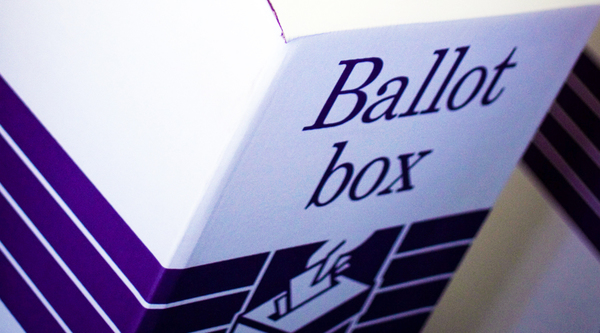
By Jeremy Sollars
Next year’s Southern Downs Regional Council election in March will be conducted by the ‘attendance’ method at local polling booths and not by postal ballot as was the case at the last council election in 2016.
The council released a statement yesterday, Thursday 19 December, saying Queensland Minister for Local Government, Racing, and Multicultural Affairs Stirling Hinchliffe had “advised the (council) Chief Executive Officer that the method of voting for the Southern Downs Regional Council 2020 elections will be via attendance rather than a postal vote”.
“Attendance voting requires people to physically attend polling booths,” the council statement said.
“Provision will be made for those people who cannot attend in person.
“The previous two local government elections conducted for the Southern Downs Regional Council have been undertaken via postal-only ballots.
“It is important to ensure that you update your details every time you move.
“You can check your electoral details at check.aec.gov.au/.
“Further information will be distributed closed to the date.”
Next year’s local government elections across Queensland – including Southern Downs Regional Council – will all be held on Saturday 28 March 2020.
The postal voting system at the 2016 Southern Downs council election was criticised at the time for confusion it caused relating to the ballot papers and the method of their return via post, including the use of secure envelopes to ensure voter anonymity.
But even more concerningly postal voting resulted in a huge ‘informal’ vote in 2016 with more than 5000 voters failing to register a vote at all, and up to a third of those ballots returned eventually being ruled ‘informal’.
An internal council review of the 2016 election showed a staggering 31.7 per cent of postal votes for the eight councillor positions were informal, largely due to confusion over the documentation.
Out of 25,254 registered voters on the rolls in the council region at the time, 5424 – or 21.5 per cent – failed to return any vote at all.
The report did not detail the number of informal votes in the mayoral ballot.
The report also recommended postal voting be scrapped and electronic voting be examined as the preferred option for future elections, using the system introduced in the Australian Capital Territory (ACT) in 2001.
It is not known if the Electoral Commission of Queensland (ECQ) has investigated the electronic option – which has its critics – but either way the 2020 council election will be conducted via the attendance method.
Postal voting in 2016 was criticised due to some voters having old post office box and other out-of-date postal addresses on the electoral roll and as a result did not receive their ballot papers at all.
Postal voting has been seen in the past as a cheaper alternative to attendance voting.






